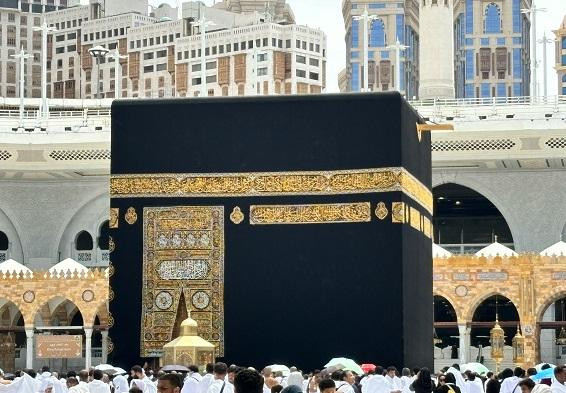Umrah, commonly known as the "lesser pilgrimage," is a revered journey in Islam that millions of Muslims embark on each year. Although it is not mandatory like Hajj, Umrah carries immense spiritual and cultural significance, acting as a personal expression of devotion that deepens the pilgrim's connection to Allah. The importance of Umrah goes beyond mere rituals, providing a transformative experience that enhances faith and promotes unity within the worldwide Muslim community. This article delves into the spiritual and cultural aspects of Umrah through the eyes of a pilgrim.
The Spiritual Significance of Umrah
1. A Journey of Faith and Devotion
At its essence, Umrah is all about submitting to Allah. When pilgrims take this journey, they show their dedication, humility, and desire to cleanse their spirits. The rituals involved, like Tawaf (walking around the Kaaba) and Sa’i (the walk between Safa and Marwah), are meaningful actions that link the pilgrim to the Prophets and strengthen their belief.
Seeking Forgiveness: A key spiritual goal of Umrah is to ask for Allah’s forgiveness. It’s thought that performing Umrah wipes away sins, giving the pilgrim a fresh start in their faith journey.
Purification of the Soul: Before starting the pilgrimage, every pilgrim enters a state called Ihram, which represents purity, humility, and equality in front of Allah. This spiritual phase encourages the pilgrim to release worldly ties and concentrate fully on their bond with the Creator.
2. Renewal of Faith
Umrah acts like a spiritual getaway for Muslims, letting them step away from their everyday routines and dive into worship. It’s a chance for some serious self-reflection, gratitude, and a fresh boost of faith. Many pilgrims come back from Umrah feeling more purposeful and with a stronger bond to their beliefs.
Deepening the Connection with Allah: The heartfelt prayers and supplications during Umrah foster a deep sense of closeness to Allah.
A Reminder of Life's Fragility: Being at the Kaaba and engaging in the rituals brings a humbling perspective, reminding pilgrims of their true purpose—serving Allah and getting ready for the afterlife.
3. Walking the Path of the Prophets
Every moment of Umrah is rich with history and spirituality, linking the pilgrim to the journeys of the Prophets. Take the Sa’i ritual, for example; it honors the determination and faith of Hagar as she sought water for her son, Prophet Ishmael. By following in their footsteps, pilgrims can truly appreciate the challenges and beliefs of those who paved the way before them.
The Cultural Significance of Umrah
1. A Sign of Togetherness and Camaraderie
One of the most amazing things about Umrah is how it brings Muslims together. No matter where they come from, their race, or their social standing, everyone dons simple white clothes, which represent equality in the eyes of Allah. This shared experience strengthens the ties of brotherhood and sisterhood within the worldwide Muslim family.
A Global Gathering: Pilgrims from all walks of life unite to worship Allah, breaking down language and cultural barriers. This togetherness is a strong reminder of Islam's welcoming spirit.
Shared Moments: The Umrah journey creates lasting memories and bonds among pilgrims as they enjoy meals, prayers, and moments of contemplation together.
2. Keeping Islamic Traditions Alive
Umrah is more than just a spiritual trip; it’s a cultural adventure that plays a big role in keeping Islamic traditions alive. When pilgrims come back home, they often feel a fresh spark for their faith, motivating those around them to deepen their own religious practices.
Sharing Insights: The knowledge and experiences gained during Umrah are passed down through families and communities, creating a shared respect for Islamic history and values.
Building Community Connections: After returning, many pilgrims host get-togethers to talk about their journeys, which strengthens community ties and encourages others to embark on their own pilgrimage.
3. Economic and Cultural Exchange
The pilgrimage brings together Muslims from all over the globe, promoting cultural sharing and understanding. The markets and events in Makkah and Madinah turn into vibrant hubs filled with various languages, foods, and customs.
Economic Boost: Pilgrims help the local economy by buying products, staying in hotels, and using services, which benefits communities in Saudi Arabia and elsewhere.
Cultural Growth: Encountering different cultures broadens the pilgrim’s perspective, nurturing a sense of a united global Muslim community.
A Pilgrim’s Perspective: Transformative Experiences
For a pilgrim, Umrah isn’t just about going through a bunch of rituals; it’s a transformative journey that really touches the soul. A lot of people say it changes them deeply, filling them with peace, thankfulness, and a sense of spiritual satisfaction.
-
Facing Challenges: The physical and emotional hurdles during Umrah, like dealing with large crowds and adjusting to new surroundings, help build resilience and patience. These lessons often carry over into everyday life, making the pilgrim stronger.
-
A Journey of Thankfulness: Being in front of the Kaaba and taking part in sacred practices serves as a powerful reminder of Allah’s blessings, motivating pilgrims to embrace a life filled with gratitude and service.
-
Enhanced Identity: For many, Umrah strengthens their connection to their Muslim identity, fostering pride in their faith and a dedication to living out Islamic values in their daily lives.
Conclusion
Umrah is a profound spiritual and cultural experience, offering personal growth and a chance to connect with Muslims worldwide. Each aspect, from prayer to shared worship, holds deep significance. For participants, it can be life-changing, fostering a stronger sense of purpose and dedication to faith. Whether undertaken alone or in a group, Umrah is a cherished expression of devotion in Islam.

